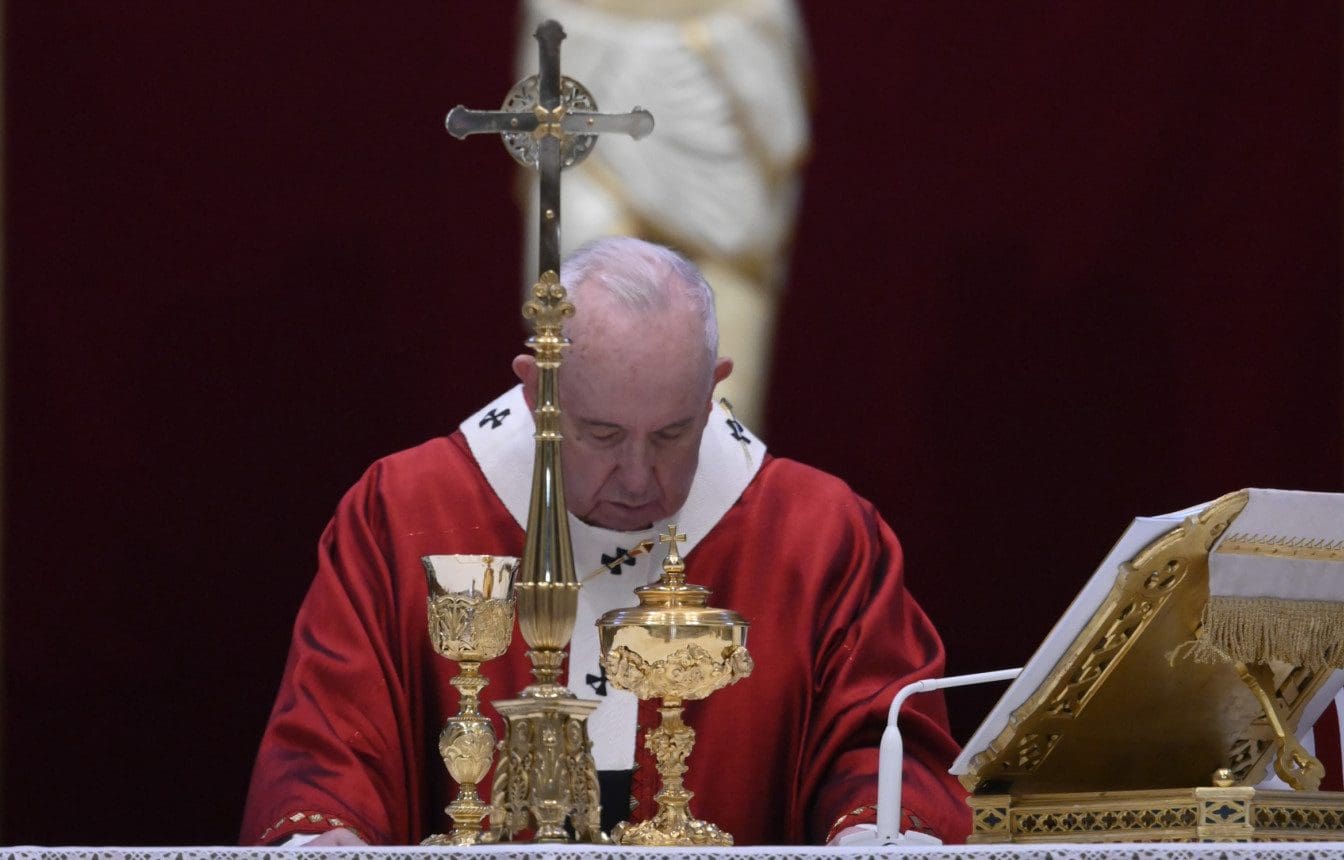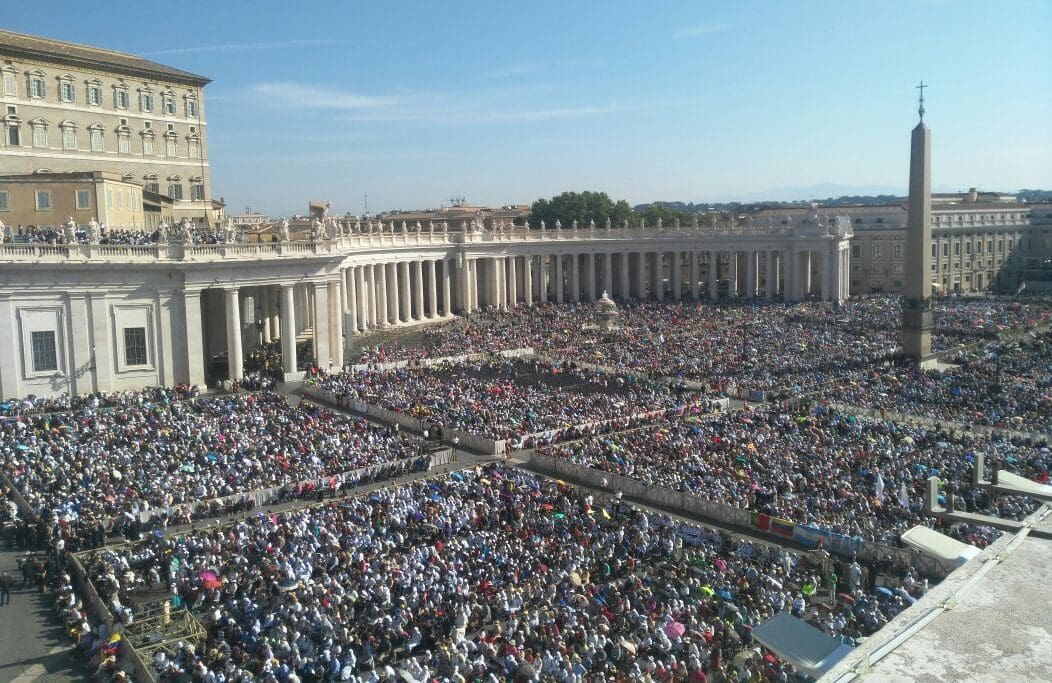Weeks have now passed since the July 16 release of Pope Francis’s motu proprio Traditionis Custodes, “On the Use of the Roman Liturgy Prior to the Reform of 1970.” Since then, anyone with access to Catholic media has had a chance to read or write reactions. Adoremus’s own initial reaction followed shortly after the motu proprio via our electronic monthly missive, AB Insight (and is available here). Now, after this initial period of reflection, what is to be done? How shall we respond?
Of course, individual Catholics, parishes, priests, and bishops will decide for themselves and those in their care on the best course to take, one filled with faith, motivated by the desire for sanctity, and in a spirit of humility and obedience. For our part, Adoremus sees itself squarely positioned to respond to one of the Holy Father’s mandates.
In his accompanying letter to Traditionis Custodes, for example, Pope Francis says he is “saddened by abuses in the celebration of the liturgy on all sides.” He continues: “In common with Benedict XVI, I deplore the fact that ‘in many places the prescriptions of the new Missal are not observed in celebration, but indeed come to be interpreted as an authorization for or even a requirement of creativity, which leads to almost unbearable distortions.’” His sadness is ours—and that of many others. Indeed, ignoring ritual instructions, unchecked liturgical abuse, and the continued distortion of the liturgy these abuses yield have all driven many souls to the relative place of stability offered in the usus antiquior.
In the same vein, Pope Francis goes on to encourage bishops “to be vigilant in ensuring that every liturgy be celebrated with decorum and fidelity to the liturgical books promulgated after Vatican Council II, without the eccentricities that can easily degenerate into abuses.” Here, too, we could not agree more with the Holy Father. Adoremus will continue to inform, inspire, and promote the celebration of the Mass and sacraments in a way that is faithful to the tradition, the Second Vatican Council, its revised rites, and the needs of men and women today.
Each priest and each Catholic, in fact, should have the same desire for a liturgy free of abuse and distortion if they wish to follow the direction of Pope Francis and his motu proprio. At bottom, the goal of the letter is to foster the unity of the Church. Consider the letter’s opening line: “Guardians of the tradition, the bishops in communion with the Bishop of Rome constitute the visible principle and foundation of the unity of their particular Churches.” From here, the Holy Father repeats the call to unity throughout the motu proprio. Any Catholic praying the postconciliar liturgy and who is interested in implementing Traditionis Custodes in obedience to the Holy Father should work toward this same end. And the source of this unitive work begins with the liturgy.
Pope Francis—along with Pope Benedict XVI and Pope John Paul II before him—sees that the first prescription for a beautiful liturgy, a healthy Church, and a holy life begins with faithful adherence to the liturgical books. Priests must, therefore, “resolve to celebrate faithfully and reverently, in accord with the Church’s tradition, the mysteries of Christ, especially the Sacrifice of the Eucharist” as they promised at their ordinations (Ordination of Priests, 124).
Liturgical ministers should “learn all matters concerning public divine worship and strive to grasp their inner spiritual meaning: in that way [they] will be able each day to offer [themselves] entirely to God, [and] be an example to all by [their] gravity and reverence in Church” (Pope Paul VI, Ministeria Quaedam, on those serving at the altar).
Musicians need to desire to “continue that [musical] tradition which has furnished the Church, in her divine worship, with a truly abundant heritage [and] examine the works of the past, their types and characteristics, but let them also pay careful attention to the new laws and requirements of the liturgy” (Musicam Sacram, 59).
Even the baptized must come to a familiarity with “the current liturgical texts and norms,” and especially “the great riches found in the General Instruction of the Roman Missal and the Order of Readings for Mass” (Pope Benedict XVI, Sacramentum Caritatis, 40).
“In order to promote the concord and unity of the Church,” Pope Francis has restricted the use of the usus antiquior and returned much of its oversight to the local bishop. But he also calls for the liturgy to be celebrated faithfully, by the books, which have been revised in accord with tradition. As he told the Congregation for Divine Worship and the Discipline of the Sacraments in 2019, “The liturgy is not ‘the field of do-it-yourself,’ but the epiphany of ecclesial communion.” If more Catholics—clergy and laity—understood and followed Pope Francis’s words, then his claim in the letter accompanying the recent motu proprio may be true: “Whoever wishes to celebrate with devotion according to earlier forms of the liturgy can find in the reformed Roman Missal according to Vatican Council II all the elements of the Roman Rite.”
Thus, one response to Traditionis Custodes works to celebrate the postconciliar liturgy worthily, beautifully, humbly, intelligently, and faithful. Adoremus!


